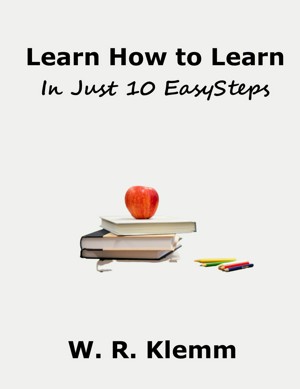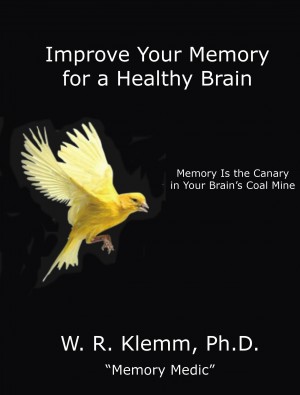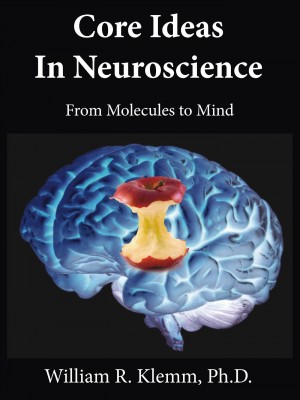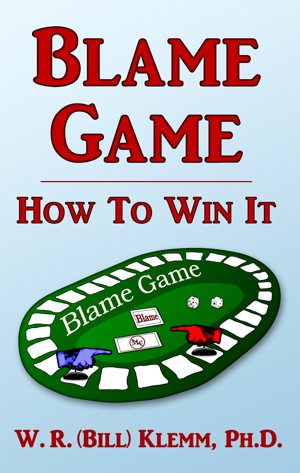Share with Friends
Interview with W. R. Klemm
Published 2013-08-31.
Smashwords Interviews are created by the profiled author or publisher.
Books by This Author
Learn How to Learn. In Just 10 Easy Steps
by W. R. Klemm
Price:
$3.95 USD.
Words: 26,790.
Language:
English.
Published: April 2, 2021
.
Categories:
Nonfiction » Education & Study Guides » Adult & continuing education
This short and simple 10-step program can make every learner succeed in school or workplace training programs. The book is extensively interactive, with numerous links within the document itself and to supplementary web sites. Each step has links to a distinct summary and is followed by a quiz and quiz answers.
Improve Your Memory for a Healthy Brain. Memory Is the Canary in Your Brain's Coal Mine
by W. R. Klemm
Price:
$4.99 USD.
Words: 61,460.
Language:
English.
Published: November 25, 2014
.
Categories:
Nonfiction » Health, wellbeing, & medicine » Aging well
Authoritative, well researched and documented, this book provides in-depth explanations on topics such as brain aging, relationships of memory with other brain functions, how to reduce absent-mindedness, the diseases of aging, and diet and supplements. The author, a neuroscientist and teacher for over 50 years,explains practical application of research-based ideas for improving memory.
Core Ideas in Neuroscience
by W. R. Klemm
Price:
$6.95 USD.
Words: 111,770.
Language:
English.
Published: December 22, 2013
.
Categories:
Nonfiction » Science & Nature » Biology
Everybody needs to know something about their brain. But who wants to wade through a tedious textbook that tells you far more than you want to know? This book is organized as modules explaining the basic principles of 75 core ideas. You don’t have to wade through it. You can dance through it, easily getting up to speed on just the few ideas you may need to know about at the moment.
Better Grades, Less Effort
by W. R. Klemm
Price:
$3.99 USD.
Words: 33,690.
Language:
English.
Published: September 18, 2010
.
Categories:
Nonfiction » Education & Study Guides » Study skills
(4.83 from 6 reviews)
This book is for any working professional engaged in on-the-job training programs. It will also help workers master their field and become more competent — more likely to be successful. The book will have special value for students, especially those in high school or college. It will also help elementary school children, though the tips should be read and explained by the parents.
Blame Game. How To Win It
by W. R. Klemm
Price:
$2.99 USD.
Words: 53,370.
Language:
English.
Published: February 10, 2009
.
Categories:
Nonfiction » Self-improvement » Confidence & self-esteem
Acclaimed by the famous "Dr. Laura" and theologian Dr. Robert Schuller, Blame Game helps you know when you are making excuses and what to do about it. The book helps people examine their excuses place and blame where it really belongs.This book provides "debt relief" for the high cost of excuse-making. The book presents a 5-step program to move from denial and deception to deliverance.





